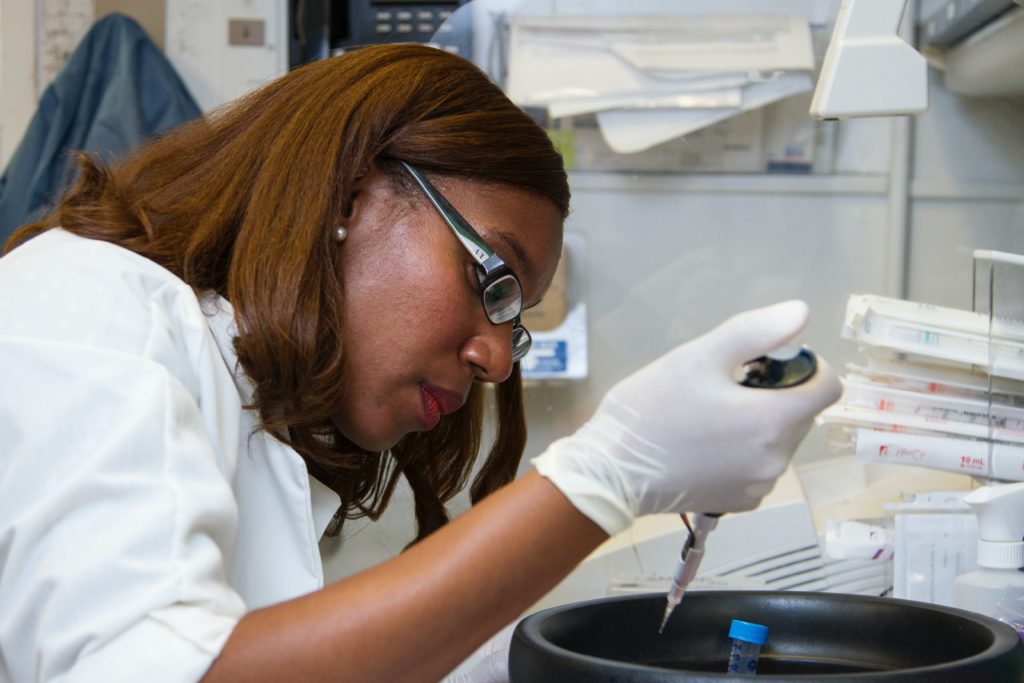Broadening the Scope of Therapeutic Treatment – Advancements in Cancer Clinical Trials
 4 years ago
By Charlotte Di Salvo
4 years ago
By Charlotte Di Salvo

With ground-breaking advancements in oncology like check-point inhibitors comes the extensive development of human clinical trials, prioritising patient safety and drug tolerability through pharmacovigilance. Proventa spoke to Chief Medical Officer for Xilio Therapeutics, Martin Huber, for his thoughts regarding exciting therapeutic developments in oncology, and the future direction of clinical trials.
Can you give us a brief introduction to your background and current activities?
Currently, I am the CMO at Xilio Therapeutics, prior to which I served as CMO at TESARO. Initially, I was the Vice President for Oncology Clinical Research at Merck Research Laboratories, where I led the pembrolizumab Lung Cancer program.
Prior to Merck, I had roles in various aspects of development and commercialisation at Schering-Plough, Hoffmann-La Roche, and Rhone-Poulenc Rorer, where I led teams in the areas of oncology clinical development and pharmacovigilance. I started my career as an Associate Professor of Oncology at the University of Texas M.D. Anderson Cancer Center. My medical degree is from Baylor College of Medicine in Houston TX.
My current activities are focused on helping build a clinical organisation at Xilio Therapeutics, a biotechnology company developing potent, tumour-selective immunotherapies for patients with cancer. We are in the process of transforming from a preclinical to a clinical organisation with two INDs in the near term which is keeping me busy.
What is the most exciting area of oncology that you’re currently working in?
High dose aldesleukin (rhIL-2) has the potential for durable complete responses. However it is only given to a small number of patients due to its life-threatening toxicity. Similarly, approved aCTLA4 therapy produces severe autoimmune toxicity. This limited potential benefit by preventing patients from receiving highly therapeutic doses or completing full courses of treatment.
Our lead candidates, XTX202 (tumour-selective IL-2) and XTX101 (tumour-selective anti-CTLA4 mAb), have demonstrated significant anti-tumour effects, with minimal peripheral effects in preclinical models, indicating the potential to achieve substantially higher levels of efficacy compared with currently approved IL-2 and anti-CTLA4 therapies. Tumour selectivity holds the promise of deepening patient responses to these validated therapies, as well as substantially increasing the number of patients who could benefit from them.
What have been the notable trends in oncology in the past year? What has driven these trends?
The obvious answer is the massive explosion in the clinical use of checkpoint inhibitors over the past five years, which has driven excitement about I/O combination strategies to replace chemotherapy. Unfortunately, these I/O combinations also resulted in excess toxicity which has limited their use. However, evolving data with second generation I/O agents is now offering the potential to combine I/O agents at therapeutic doses. Randomised trials will be reading out over the next year or so, in order to inform if this approach is going to become foundational and we can finally start to move on from chemotherapy.
Where should oncology experts be focusing their efforts in light of these priorities?
That is a difficult question, there is so much going on. I think one major focus is we need to define better if we have an active molecule early in our development plan. There are too many exciting targets and too many candidates for these targets to expend resources (patients, time and capital) on molecules that ultimately don’t work. We need to avoid trials that treat hundreds of patients for treatments with no evidence of efficacy in cancer patients. Therefore, I think an area of focus is how do we get better at proof of concept. We need to show that the treatment has a legitimate opportunity to provide meaningful benefit to cancer patients.
Unfortunately, for I/O agents, the predictive value of preclinical molecules will always be limited. We need to accept that we are going into patients with limited preclinical robust proof of concept and are going to rely on activity in patients. However, once we enter into patients, it is always very hard to stop given the significant investment of time, energy and capital to have gotten there. We have not fundamentally improved the way we conduct clinical trials to better answer these questions.
Which innovations or new technology most excites you right now / in the near future?
While I am biased by my current role, I think the approach of tumour-specific activation of I/O agents is very exciting. We can achieve a more than hundred-fold improvement in TI in preclinical models using tumour-selective activation of IL-2. But it is not just us, there are many other approaches to tumour- specific activation beyond MMPs using pH and other approaches. ADCC has re-emerged with tumour antigens used to target a range of warheads to the tumour. This is spawning a new set of companion diagnostics. If you know the tumour expression, and the target antigen, you can go beyond histology and select the right patients based on knowledge that your target is present.
What topics would you most like to hear discussed in the next oncology event?
I think it is time for us on the clinical side to figure out how to take advantage of this wave of new molecules and new targets. How do we use novel approaches such as phase 0 studies, to answer the fundamental questions? Does the molecule have its intended effect in a tumour in a cancer patient before we begin down the path of phase 1 dose escalation and phase 2 for efficacy?. What other approaches exist to better understand our treatments in patients? Answering this question is crucial before we invest heavily in full GMP CMC programs, and full GLP toxicology program. This, in addition, to more than 100 patients in a clinical program – only to learn that there is no efficacy.
Anything else you would like to add that people should know?
I think this is probably the most exciting time to be involved in cancer treatment. Our understanding of the complex biology of cancer has grown by leaps and bounds since the initial war on cancer back in the ‘60s. However, more than 50 years later, we are moving the needle on cancer survival. While it remains a laborious task with more misses than hits, ultimately seeing the improvement in survival across multiple cancer types is why most of us started in this occupation. We all have that personal story of a loved one we know who succumbed to cancer. While our advances are too late for them, the work we do is helping the next generation of cancer patients in a meaningful way.
Charlotte Di Salvo, Junior Medical Writer
Proventa International

Role of an Immunologist: Exploring the Responsibilities
In the intricate web of human health, the immune system stands as a vigilant guardian, tirelessly defending against potential threats. At the forefront of understanding, deciphering, and harnessing the immune system's power is the immunologist. This article delves into the...
2 years agoRole of an Immunologist: Exploring the Responsibilities
In the intricate web of human health, the immune system stands as a vigilant guardian, tirelessly defending against potential threats. At the forefront of understanding, deciphering, and harnessing the immune system's power is the immunologist. This article delves into the...
2 years ago
What Does an Oncologist Do? A Comprehensive Guide to Their Role in Cancer Treatment
If you or someone you care about has been diagnosed with cancer, you're likely to come across the term "oncologist." But what exactly is an oncologist, and what do they do? In this article, we'll delve into the world of...
2 years agoWhat Does an Oncologist Do? A Comprehensive Guide to Their Role in Cancer Treatment
If you or someone you care about has been diagnosed with cancer, you're likely to come across the term "oncologist." But what exactly is an oncologist, and what do they do? In this article, we'll delve into the world of...
2 years ago
How to Reduce the Cost of Clinical Trial Supply Chain While Maintaining Quality and Efficiency
Clinical trial supply chain is a critical component of drug development, ensuring that drugs are available for testing, regulatory approval, and distribution. However, managing this supply chain can be challenging, with factors such as cost, quality, and efficiency all coming...
2 years agoHow to Reduce the Cost of Clinical Trial Supply Chain While Maintaining Quality and Efficiency
Clinical trial supply chain is a critical component of drug development, ensuring that drugs are available for testing, regulatory approval, and distribution. However, managing this supply chain can be challenging, with factors such as cost, quality, and efficiency all coming...
2 years ago